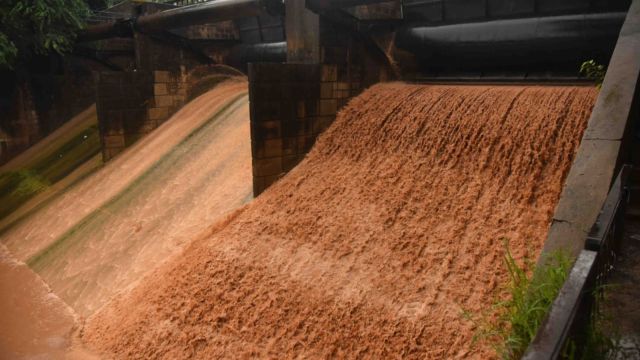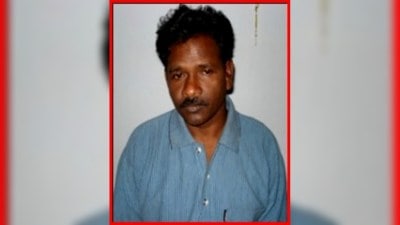As water level breaches danger mark, Chandigarh admn opens two floodgates of Sukhna
One gate was opened at 7.30 am and the second at 9 am, marking the eighth such instance this monsoon season
 Officials said excess water was being discharged into the Ghaggar river via Sukhna choe, with neighbouring districts duly alerted
Officials said excess water was being discharged into the Ghaggar river via Sukhna choe, with neighbouring districts duly alertedFollowing heavy overnight rain, the Chandigarh Administration on Monday opened two of the three floodgates of Sukhna Lake after its water level crossed the danger mark of 1,163 feet. One gate was opened at 7.30 am and the second at 9 am, marking the eighth such instance this monsoon season.
Officials said excess water was being discharged into the Ghaggar river via Sukhna choe, with neighbouring districts duly alerted. The heavy flow forced the closure of small bridges over Sukhna choe at Sector 26 and Industrial Area, Phase 1, as a precautionary measure. Widespread waterlogging caused traffic snarls, with long queues reported on Madhya Marg and the Zirakpur–Tribune Chowk stretch near Hallo Majra lights.
Deputy Commissioner Nishant Kumar Yadav, accompanied by the Senior Superintendent of Police and SDM (East), inspected the Sukhna Lake Regulatory Head and rain-affected areas, reviewing water discharge, assessing damage, and interacting with residents. Directions were issued for drainage clearance, deployment of machinery, and emergency teams on standby.
Later, Chief Secretary (in-charge) Mandip Singh Brar chaired a review meeting, instructing officials to monitor Patiala ki Rao, regulate traffic in waterlogged stretches, repair damaged roads, and ensure health preparedness with adequate medicines and staff.
MC launches drive to clear water stagnation
The Municipal Corporation (MC), Chandigarh on Monday carried out an intensive drive across various sectors to tackle water stagnation and related sanitation issues.
MC Commissioner Amit Kumar, along with the Chief Engineer and other officials, inspected several locations, including the GPO Building complex in Sector 17, where persistent waterlogging has been causing foul odour, mosquito breeding, and potential damage to infrastructure.
Taking note of the issue, the Commissioner directed departments to investigate reasons for unresolved complaints, fix accountability for negligence, undertake immediate dewatering and sanitation measures, and implement long-term preventive strategies.
Kumar also instructed all municipal wings to conduct similar inspections in their respective areas and submit reports within 24 hours.







